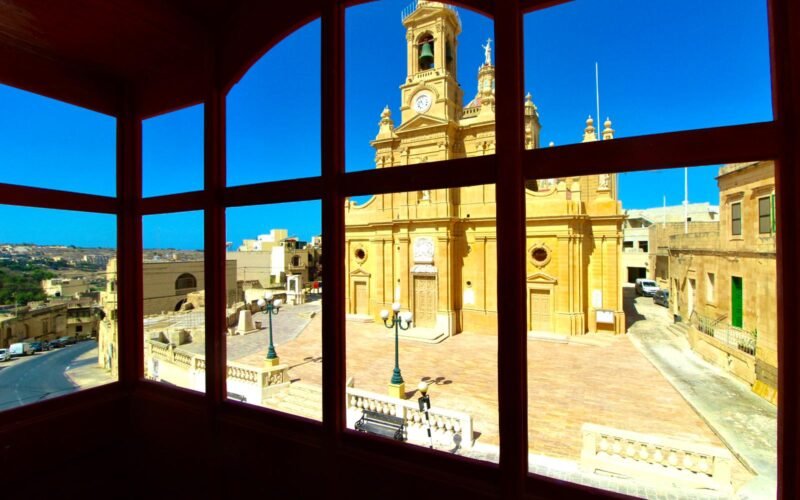Taxation can often seem confusing, especially when dealing with international matters. On the other hand, for those considering Malta as their residence, understanding the principles of remittance basis is of high importance.
To simplify the process before your move, we’re here to help you discover the key concepts and rules applicable to this form of taxation.
Remittance Basis: What Does It Mean?
When discussing taxation in Malta, the term “remittance basis” is often mentioned. But what does it actually mean?
The “remittance basis” in Maltese taxation is a concept used to determine how individuals who live in Malta but have foreign income are taxed. To simplify, it means that these individuals only pay tax on the income they earn from Maltese sources, and on foreign income only if they bring (or “remit”) that money into Malta.
For example, if someone living in Malta earns money from a job in Malta, they will be taxed on that income as usual. However, if they also earn money from investments in another country, they will only be taxed on this foreign income if they decide to transfer it to a bank in Malta. If they keep this money abroad, they won’t be taxed on it in Malta. This system can be beneficial for people who earn money in multiple countries but spend most of their time living in Malta.
Remittance Basis of Taxation Concerns Not Domiciled Residents
The remittance basis is applicable to individuals who are either not domiciled or not ordinarily resident in Malta. This framework governs how income and capital gains are taxed based on their source and where they are received:
- Income generated within Malta is subject to taxation in Malta, regardless of where it’s received.
- Income earned outside Malta is only taxed in Malta if it’s remitted to the country.
- Capital gains from assets located outside Malta are not taxable in Malta, even if remitted to the country.
Residence, Ordinary Residence, and Domicile
Understanding one’s tax status in Malta hinges on concepts like residence, ordinary residence, and domicile:
- Residence: It’s determined by physical presence, with 183 days or more in Malta in a calendar year establishing residency. Those intending to reside permanently are considered residents from the date of arrival.
- Ordinary Residence: Living in Malta permanently or indefinitely signifies ordinary residence. Even temporary residents can become ordinary residents under certain conditions. For instance, this rule would encompass individuals who spend more than 183 days in Malta each year continuously, such as for three consecutive years. Additionally, it can include individuals who, although not staying in Malta for more than 183 days in any single year, frequently visit the country over an extended period, like three years, and develop personal and economic connections with Malta.
- Domicile: It’s not tied to nationality but reflects where an individual considers their permanent home. One can acquire a domicile of choice by intending to reside permanently in a country. You can read our guide on non-dom status in Malta for further information.
To Be Considered: An individual classified as an ordinary resident forfeits this status upon permanently or indefinitely leaving Malta. However, if they are temporarily away from Malta, their residency status remains intact unless their absence contradicts the criteria for residency – typically, if they become a tax resident of another country. The determination of residency in such cases relies on various factors, notably the personal and economic connections maintained with Malta.
Where Are Income and Capital Gains Taxed?
Taxation of income and capital gains in Malta follows these principles:
- Income Arising in Malta: Income from activities conducted within Malta is taxed in Malta. Passive income is taxed where the source is located.
- Capital Gains Arising in Malta: Gains from assets situated in Malta are taxable in Malta.
You can find more information about capital gains in Malta in our guide.
Income Received in Malta is Subject to Taxation
Income received in Malta, whether directly or indirectly, is subject to taxation. Remittances to Maltese bank accounts or via credit cards are presumed to be income unless proven otherwise. However, remittances of capital nature, like inheritance or asset sale proceeds, aren’t considered taxable income. Practically speaking, if you hold your Apple shares outside Malta and sell them, realising a gain, the gain won’t be taxed even if you remit the funds to Malta. However, as another example, the dividends you receive on your Apple stock, or interest coming from corporate or government bonds, are not capital gains and would therefore be taxed.
Note, finally, that savings remitted to Malta are not taxed. It is a practice permitted by the Maltese tax authorities that if funds are held outside Malta for a calendar year, these are considered to be savings.
Minimum Tax Liability for Non-Domiciled Persons
Non-domiciled individuals who are ordinarily resident in Malta face a minimum tax liability of €5,000 annually if their worldwide income exceeds €35,000. Relief may be claimed for taxes paid elsewhere. Alternatively, individuals can opt for worldwide taxation if it results in a lower tax liability.
Conclusion
Understanding the principles of taxation, especially regarding the remittance basis, is essential for anyone considering residence in Malta. By getting familiar with these concepts and seeking expert guidance if needed, individuals can navigate the tax landscape effectively and make informed decisions regarding their financial affairs.
Seeking Proper Advice
Taxation can be complex, and an individual’s different cases influence tax obligations. Seeking professional advice before establishing residency in Malta is important to ensure compliance and optimise tax planning. Do not hesitate to ask for assistance on our Expatax Malta website.







